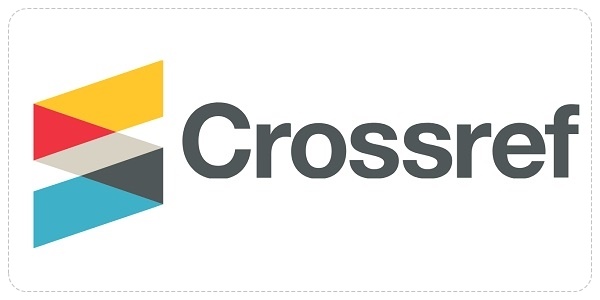PENINGKATAN KEMAMPUAN BERPIKIR DALAM PENDEKATAN STEM DENGAN MODEL PJBL (PROJECT BASED LEARNING) DI SEKOLAH DASAR
Abstract
Abstrak
Perkembangan Era data, digital, Bisnis, Teknologi dan Ilmu Pengetahuan yang sangat cepat dan pentingnya kemampuan berpikir bagi peserta didik menjadi tantangan bagi lembaga pendidikan untuk merealisasikan dalam proses pembelajaran. Untuk itu perlu adanya model pembelajaran yang dapat memfasilitasi pengalaman belajar peserta didik dalam membentuk kemampuan berpikir dan kemampuan terpadu dalam bidang science, technology, engineering dan mathematics (STEM). Oleh karena itu, perlu adanya riset tentang model pembelajaran tersebut sebagai alternatif untuk implementasi model pembelajaran di sekolah. Riset ini bertujuan untuk mengetahui apakah ada peningkatan kemampuan berpikir peserta didik dalam pembelajaran STEM dengan menggunakan model Pembelajaran Berbasis Projek (PjBL) di Sekolah Dasar. Desain penelitian yang digunakan adalah Time Series Design dalam pelaksanaannya hanya menggunakan satu kelompok saja tidak menggunakan kelompok kontrol. Dari hasil riset ternyata secara keseluruhan memperlihatkan bahwa pembelajaran STEM melalui pedekatan Project based learning (PjBL) dapat mebantu meningkatkan kemampuan problem sensitivity, deductive reasoning, inductive reasoning, mathematical reasoning, number faciliry, perceptual, Speed serta control precision yang diterapkan pada pembelajaran di sekolah dasar kelas tinggi.
Abstract
The development of the data, digital, business, technology and science era is very fast and the importance of thinking skills for students is a challenge for educational institutions to realize the learning process. For this reason, it is necessary to have a learning model that can facilitate the learning experience of student informing thinking skills and integrated ablilities in the fields of Science, Technology, Engineering, and Mathematics (STEM). Therefore, it is necessary to resesrch this learning model as an alternative for implementing learning models in schools. This research aims to determine whether there is an increase in the thinking skills of student in STEM learning using the Project based learning (PjBL) mode in elementary schools. The research design used the series design in its implementation using only one group, not using control group. From the research results , it turns out that overall it shows that STEM learning through the Project based learning (PjBL) approach can help improve the ability of problem sensitivity, deductive reasoning, inductive reasoning, mathematical reasoning, number facilitation, perceptual speed, and control precision applied to learning in elementary schools high grade.
Keywords
Full Text:
PDF (Bahasa Indonesia)References
Affandi, A., & Sukyadi, D. (2016). Project-based learning and problem-based learning for EFL students’ writing achievement at the tertiary level. Rangsit Journal of Educational Studies, 3(1), 23-40.
Afriana, J., Permanasari, A., & Fitriani, A. (2016). Penerapan project based learning terintegrasi STEM untuk meningkatkan literasi sains siswa ditinjau dari gender. Jurnal Inovasi Pendidikan IPA, 2(2), 202-212.
Alatas, F. (2014). Hubungan pemahaman konsep dengan keterampilan berpikir kritis melalui model pembelajaran treffinger pada mata kuliah fisika dasar. Edusains, 6(1), 87-96.
Archambault, J., Burch, T., Crofton, M., & McClure, A. (2008). The effect of developing kinematics concepts graphically prior to introducing algebraic problem solving techniques. Action Research required for the Master of Natural Science degree with concentration in physics.
Assaf, D. (2018). Motivating language learners during times of crisis through project-based learning: Filming activities at the arab international university (AIU). Theory and Practice in Language Studies, 8(12), 1649-1657.
Baghoussi, M., & Zoubida El Ouchdi, I. (2019). The implementation of the project-based learning approach in the Algerian EFL context: Curriculum designers’ expectations and teachers’ obstacles. Arab World English Journal (AWEJ) Volume, 10.
Balve, P., & Albert, M. (2015). Project-based learning in production engineering at the Heilbronn Learning Factory. Procedia cirp, 32, 104-108.
Belagra, M., & Draoui, B. (2018). Project-based learning and information and communication technology’s integration: Impacts on motivation. International Journal of Electrical Engineering Education, 55(4), 293-312.
Bruce R, Joyce. (2015). Models of teaching, Booksend Laboratories,Marsha Weil, ETR Associates Emily Calhoun, The Phoenix Alliance’
Carnevale, A. P., Smith, N., & Melton, M. (2011). STEM: Science Technology Engineering Mathematics. Georgetown University Center on Education and the Workforce.
Dewi, M., Kaniawati, I., & Suwarma, I. R. (2018, May). Penerapan pembelajaran fisika menggunakan pendekatan STEM untuk meningkatkan kemampuan memecahkan masalah siswa pada materi listrik dinamis. In Quantum: Seminar Nasional Fisika, dan Pendidikan Fisika (pp. 381-385).
Hake, R. R. (2002, August). Relationship of individual student normalized learning gains in mechanics with gender, high-school physics, and pretest scores on mathematics and spatial visualization. In Physics education research conference (Vol. 8, No. 1, pp. 1-14).
Hickman, P., Schrimpf, M., & Wedlock, D. (2009). A problem based learning project investigating the underlying dimensions of professional learning communities in public primary and secondary schools in the state of Missouri (Doctoral dissertation, Saint Louis University).
Kelley, T. R., & Knowles, J. G. (2016). A conceptual framework for integrated STEM education. International Journal of STEM education, 3(1), 1-11.
Railsback, J. (2002). Project-Based Instruction: Creating Excitement for Learning. By Request Series.
Rickinson, M. (2001). Learners and learning in environmental education: A critical review of the evidence. Environmental education research, 7(3), 207-320.
Roestiyah, N. K. (2008). Strategi pembelajaran. Jakarta: Rineka Cipta.
Sari, Y. I., & Putra, D. F. (2016). Pengaruh model pembelajaran treffinger terhadap kemampuan berpikir kritis dan kreatif mahasiswa Universitas Kanjuruhan Malang. Jurnal Pendidikan Geografi, 20(2).
Supriadi, S., Arisetyawan, A., & Tiurlina, T. (2016). Mengintegrasikan pembelajaran matematika berbasis budaya Banten pada pendirian SD Laboratorium UPI Kampus Serang. Mimbar Sekolah Dasar, 3(1), 1-18.
Syahida, A., & Irwandi, D. (2015). Analisis keterampilan berpikir tingkat tinggi pada soal ujian nasional kimia. EDUSAINS, 7(1), 77-87.
VanTassel-Baska, J. (1994). Comprehensive curriculum for gifted learners. Allyn & Bacon.
Zubaidah, S. (2016, December). Keterampilan abad ke-21: Keterampilan yang diajarkan melalui pembelajaran. In Seminar Nasional Pendidikan (Vol. 2, No. 2, pp. 1-17).
DOI: https://doi.org/10.17509/pdgia.v18i2.32628
Refbacks
- There are currently no refbacks.
INDEXED BY

This work is licensed under a Creative Commons Attribution-ShareAlike 4.0 International License















